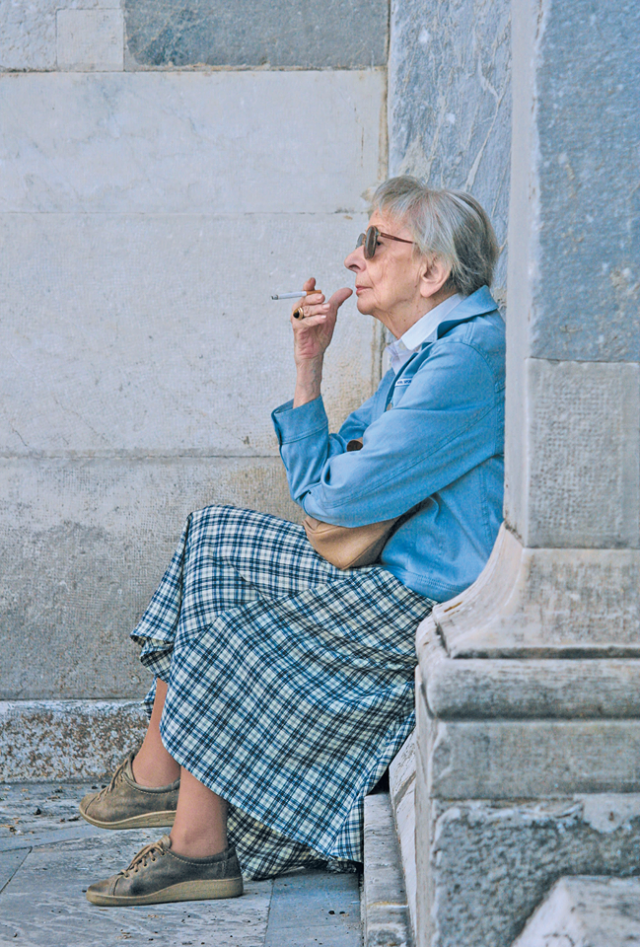Maria Wisława Anna Szymborska (2 July 1923 – 1 February 2012) was a Polish poet, essayist, translator and recipient of the 1996 Nobel Prize in Literature.
“I wouldn't want what happened to me to happen to anybody, because it is something that destroys the spirit and the soul, totally, there is no comparison. To talk about it is hard for me, because it all comes back at once...all that terror, that horror.”
“It's over 25 years now since I was arrested and tortured for treating a wounded revolutionary, but the memories of the pain in torture, the terror and the utter desolation of weeks in solitary confinement, are still with me. I believe it is the same for all of us, the men and women who have been imprisoned, stripped naked, hurt and humiliated. We are left with only a thin veneer over our pain, and the outraged question: how could one human being do this to another, and how could others stand by and watch it happen? What are we doing, when we turn away from other people's suffering? What is that happens in the human heart to block the natural flow of compassion that is an intrinsic part of us?”
Wislawa Szymborska’s words provide a context for her thoughts on torture, for the way she seems to play with the absurdity (and meaninglessness) of fate, placing prison next to romantic love in the context of follies.
Tortures
Nothing has changed.
The body is susceptible to pain;
it has to eat and breathe the air, and sleep;
it has thin skin, and the blood is just beneath it;
an adequate supply of teeth and fingernails;
its bones can be broken; its joints can be stretched.
In tortures, all this is taken into account.
Nothing has changed.
The body shudders as it shuddered
before the founding of Rome and after,
in the twentieth century before and after Christ.
Tortures are just as they were, only the earth has grown smaller,
and what happens sounds as if it's happening in the next room.
Nothing has changed.
It's just that there are more people,
and beside the old offences new ones have sprung--
real, make-believe, short-lived, and non-existent.
But the howl with which the body answers to them,
was, is and ever will be a cry of innocence
according to the age-old scale and pitch.
Nothing has changed.
Except perhaps the manners, ceremonies, dances.
Yet the movement of hands to shield the head remains the same.
The body writhes, jerks and tries to pull away,
its legs fail, it falls, its knees jack-knife,
it bruises, swells, dribbles and bleeds.
Nothing has changed.
Except for the course of rivers,
the lines of forests, coasts, deserts and glaciers.
Amid those landscapes roams the soul,
disappears, returns, draws nearer, moves away,
a stranger to itself, elusive,
now sure, now uncertain of its own existence,
while the body is and is and is
and has nowhere to go.
A Opinion on the Question of Pornography
There's nothing more debauched than thinking.
This sort of wantonness runs wild like a wind-borne weed
on a plot laid out for daisies.
Nothing's sacred for those who think.
Calling things brazenly by name,
risqué analyses, salacious syntheses,
frenzied, rakish chases after the bare facts,
the filthy fingering of touchy subjects,
discussion in heat--it's music to their ears.
In broad daylight or under cover of night
they form circles, triangles, or pairs.
The partners' age or sex is unimportant.
Their eyes glitter, their cheeks are flushed.
Friend leads friend astray.
Degenerate daughters corrupt their fathers.
A brother pimps for his little sister.
They prefer the fruits
from the forbidden tree of knowledge
to the pink buttocks found in glossy magazines--
all that ultimately simple-hearted smut.
The books they relish have no pictures.
What variety they have lies in certain phrases
marked with a thumbnail or a crayon.
It's shocking, the positions,
the unchecked simplicity with which
one mind contrives to fertilize another!
Such positions the Kama Sutra itself doesn't know.
During these trysts of theirs, the only thing that's steamy is the tea.
People sit on their chairs and move their lips.
Everyone crosses only his own legs
so that one foot is resting on the floor
while the other dangles freely in midair.
Only now and then does somebody get up,
go to the window,
and through a crack in the curtains
take a peep out at the street.
[ From View with a Grain of Sand by Wislawa Szymborska, Translated by Stanislaw Baranczak and Clare Cavanagh ,”A Harvest Original" Harcourt & Brace & Co. New York 1993 ]
Any Case
It could have happened.
It had to happen.
It happened earlier. Later.
Closer. Farther away.
It happened, but not to you.
You survived because you were first.
You survived because you were last.
Because alone. Because the others.
Because on the left. Because on the right.
Because it was raining. Because it was sunny.
Because a shadow fell.
Luckily there was a forest.
Luckily there were no trees.
Luckily a rail, a hook, a beam, a brake,
A frame, a turn, an inch, a second.
Luckily a straw was floating on the water.
Thanks to, thus, in spite of, and yet.
What would have happened if a hand, a leg,
One step, a hair away?
So you are here? Straight from that moment still suspended?
The net's mesh was tight, but you? through the mesh?
I can't stop wondering at it, can't be silent enough.
Listen,
How quickly your heart is beating in me.
Translated from the Polish by Grazyna Drabik and Sharon Olds ]
